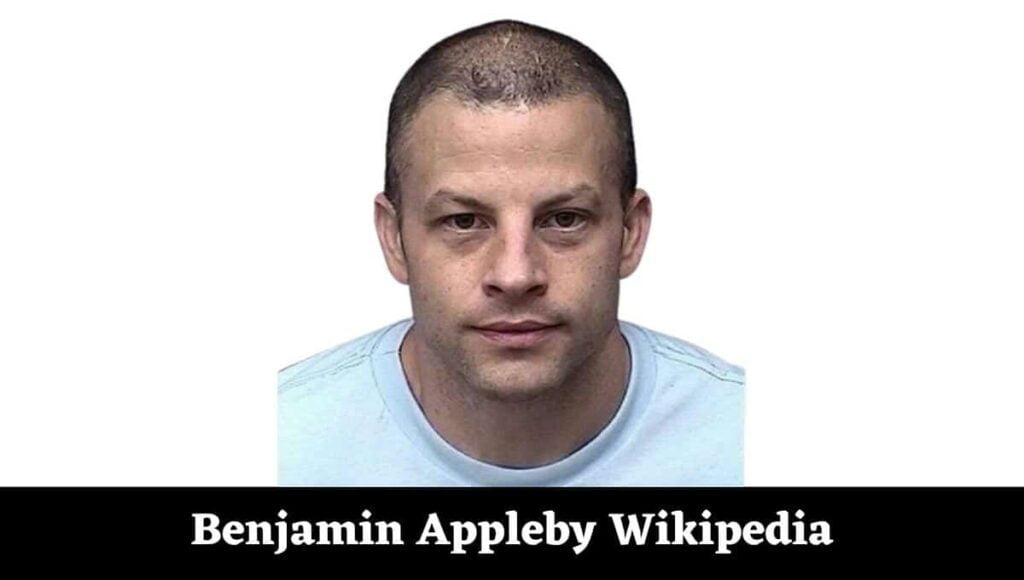Benjamin Appleby Wikipedia, Wiki, Now, Age, Killer, Partner
Benjamin Appleby Wikipedia, Wiki, Now, Age, Killer, Partner -:Oct. 28, 2005 — — Ali Kemp seemed to be leading a charmed life. The 19-year-old was raised in a loving family with her parents and two brothers in Leawood, Kansas, a serene, tree-lined suburb just outside of Kansas City. She was a remarkable young woman who, according to all accounts, aspired to work with disadvantaged children in Russia one day. But she didn’t have the chance.
Benjamin Appleby News
On a cloudy June day in 2002, Ali perished in a horrifying act of senseless violence that not even seasoned local police officers had ever seen before .Leaway Police Department Maj. Craig Hill said, “I’d have to say that in my 35 years of experience, it was probably the most horrific thing that could happen to a community like this.”
Kemp, a recent honors graduate from Kansas State University, was stationed at a neighborhood pool four blocks from her family’s home. “The construction of the community pool was excellent. “20/20” correspondent Don Dahler quoted her father, Roger Kemp, as saying, “And you would think the safest place in the world.”
On that muggy June day, when not many people were at the pool due to the cloudy weather, Ali was unexpectedly approached by a man in the pump room. Later, he would beat her severely and choke her. She invited her friend Laurel Vine to hang out with her while she worked at the pool by calling her at around three o’clock. She then called her boyfriend Phil Howes on his mobile phone. Howes, however, ignored her call. She may have been having problems at the time and trying to contact me, so I wish I had been able to respond.
Nothing seemed out of the ordinary as Vine made his turn into the pool parking lot. “I saw a man walk away. To me, he appeared to be a maintenance worker. I simply cast a quick glance around and saw Ali’s possessions. I merely assumed that she had left to complete a very important task. “I left after that and went home,” she continued.T wo hours later, when Ali’s brother Tyler came to take over the pool duties, he found Ali’s pocketbook and cell phone on a table but no sign of his sister. After that, he called his father, who showed up to help him find her.
I looked around the pool area and the poolhouse, but nothing was there. I only had to walk a short distance more to meet Ali. Even though she was covered, her leg was visible. With tears in his eyes, her father recalls, “I flung back the cover and there she was. After receiving the call, Det. Joe Langer went to the scene and discovered that the girl had been severely beaten and that there had been a violent fight.
Langer claims that she ultimately lost the fight for her life.
When Vine first heard the depressing news, she immediately thought of the man she had just seen. She remembered having the thought, “Oh, my God, I just saw her killer and I didn’t know it.”Considering that a murderer was still at large, the neighborhood was terrified. Forty detectives from the Kansas City area scattered in search of leads.Vine was asked by the police to meet with a forensic artist and provide a description of the person she saw.
The small Leawood police force’s staff was overworked. They were always looking for something. They were looking for this individual, said Hill. However, Ali’s murderer was still at large after eight months. Everyone was becoming increasingly despondent.
But Kemp would not relent until the killer of his daughter was found. He decided that in order to help catch the murderer, something had to be done. Billboards, which he passed practically every day on his way to work, served as his source of inspiration. When I saw them while traveling down the highway, I reasoned, why not? Why not give them a call and ask how much a billboard costs? I did that, he continued.
Bob Fessler of Lamar Advertising, which controlled the neighborhood billboards, was surprised by Kemp’s sudden request, but he was eager to help. He continued, “I never thought we’d be involved in criminal investigations. Kemp was “fully prepared,” according to Fessler, to put up a few billboards to help generate leads and catch the killer of Kemp’s daughter.
However, Kemp was prohibited from purchasing a billboard by Lamar Advertising. They provided one as a substitute.
Billboards had been used in the past to find people who were missing, but never to solve a homicide.Maj. Hill was impressed by the idea. What come to mind when Roger poses that query to you? I thought that was perfect. It’ll be great because the newspaper gets thrown out with the trash after you read it. The moment it airs on television, it’s over. Billboard is stationary every day of the week, he said.
Additionally, the billboard that had been donated to help Kemp was seen daily by 50,000 people. There was a speedy response. Over the course of the first week, we most likely received 100 to 150 tips from the first billboard. He said they just rolled in.
Following their recognition of the man from the billboard, two people called. Finally, more than two years after Ali’s passing, those hints enabled police to find a house in Bantam, Connecticut, which was 1,300 miles away. Police entered the area in November 2004 and detained 30-year-old Benjamin Appleby.
Police were able to track down the suspect in Roger Kemp’s daughter’s murder thanks to the idea for his billboard. He still had to listen to the chilling audio of Benjamin Appleby’s confession, which was played in court and described Ali’s final moments.
Appleby noticed Ali in the pool’s pump room. She was attractive to him, he claimed, and he went up to her with the idea of “hitting on her.” When he tried to touch her, Appleby admitted to police on camera that she resisted his advances and pushed him away. She pushed me away and hit me after I lightly touched her without touching her shoulder, hip, or anywhere else. I completely lost it. I struck her back. “I know I f—ing killed her, and I don’t know why I did,” he confessed to the police in a recorded statement.
Appleby has entered a not guilty plea and the trial is ongoing despite the confession.
For Kemp, assisting in the arrest of his daughter’s accused killer was insufficient. He started an initiative to use billboards as contemporary “wanted” signs to apprehend other murderers. These billboards have been directly responsible for the arrests of alleged murders of Cornelius May, Phillip Hughes, and five other fugitives in the Kansas City region alone during the previous three years. And other states including Michigan, New Jersey, and Louisiana have also adopted the program. Now, even America’s Most Wanted uses billboards to combat crime.
“I don’t understand why it hasn’t been done before. I felt that may be a nice avenue after seeing the advertisements, and it turned out to be a terrific avenue,” Kemp added.
Kemp is equally committed to helping families avert the suffering his family has had to endure as he was in finding his daughter’s killer. Kemp launched a self-defense course since he is aware that his daughter struggled mightily to save her life but was unsuccessful. Approximately 2,000 people have attended so far.“We don’t want another young girl to experience that. We don’t want their family to experience it, he said.
Frequently Asked Questions about Benjamin Appleby
What was Benjamin Appleby’s research focus?
Appleby’s research focused on early American history and the history of religion in America. He was particularly interested in the ways in which religion shaped American culture and society.
What are some of Appleby’s most important contributions to the field of history?
Appleby’s work helped to reshape our understanding of early American history. He argued that the American Revolution was not simply a political event, but also a religious one. He also showed how religion played a central role in the development of American culture and society.
What are some of Appleby’s most influential books?
Appleby’s most influential books include Inheriting the Revolution: The Shaping of Colonial America in the British Atlantic (2006) and The Ambivalence of the Sacred: Religion, Violence, and the Birth of America (2000). These books have been widely praised for their insights into early American history and the role of religion in American society.
What awards and honors did Benjamin Appleby receive?
Appleby received numerous awards and honors for his work, including the Bancroft Prize, the Pulitzer Prize in History, and the National Book Award. He was also a member of the American Academy of Arts and Sciences and the National Academy of Sciences.
How did Benjamin Appleby’s work impact the study of history?
Appleby’s work had a profound impact on the study of history. He helped to reshape our understanding of early American history and the role of religion in American society. His work continues to be read and cited by scholars today.
Is Benjamin Appleby alive?
No, Benjamin Appleby passed away in 2021 at the age of 72.

